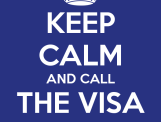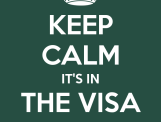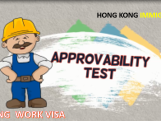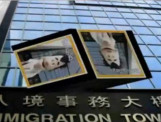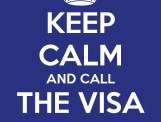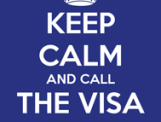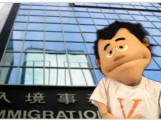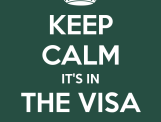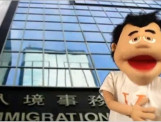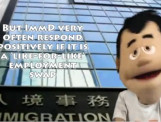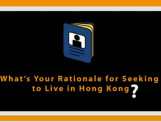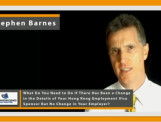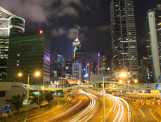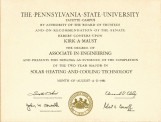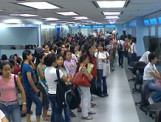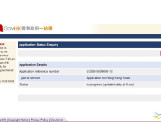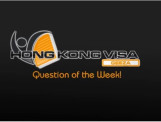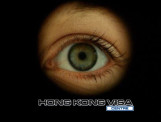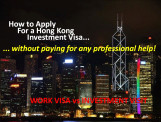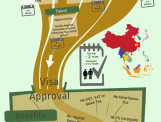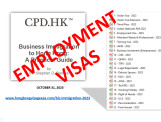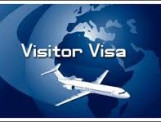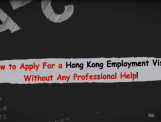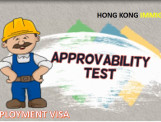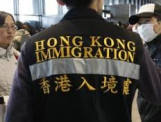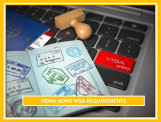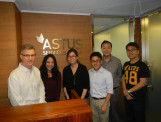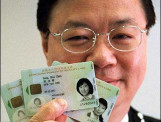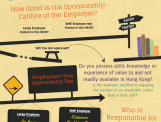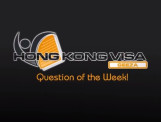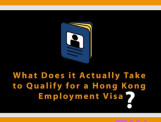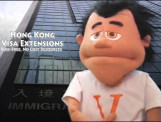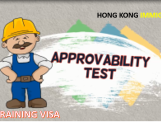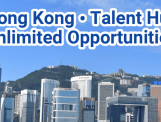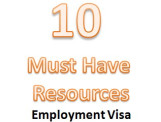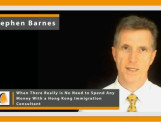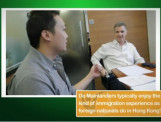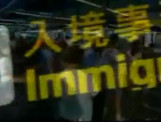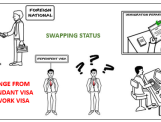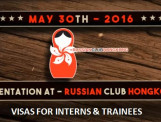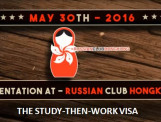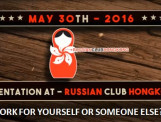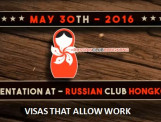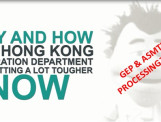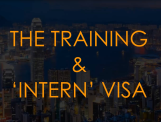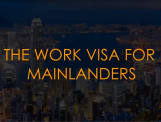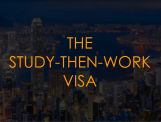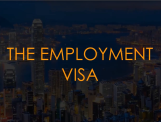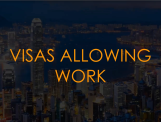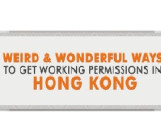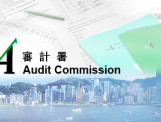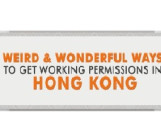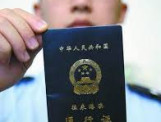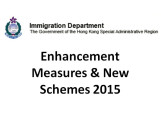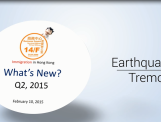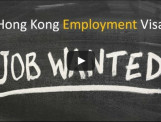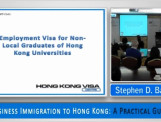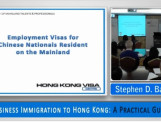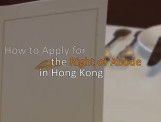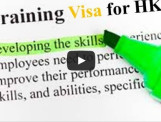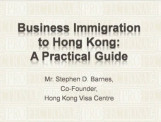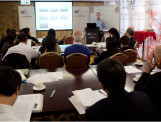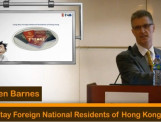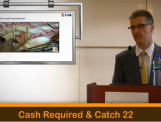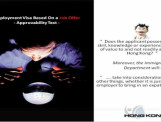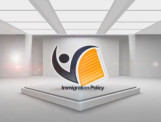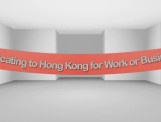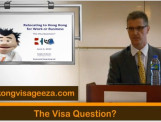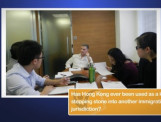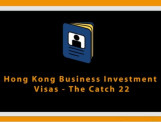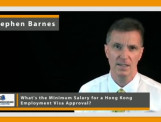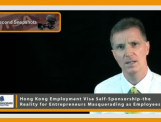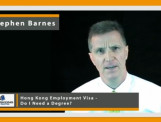
Hong Kong Visas Overview in 20 Minutes
Posted by The Visa Geeza / in Employment Visas, Family Visas, Investment Visas, Long Stay & PR, Special Programmes, VG Front Page, Visitor Visas / No responses
Last week I gave a short presentation – Hong Kong Visas Overview in 20 Minutes with the Hong Kong Association of New York and its affiliates.
I was one of three presenters, the other jurisdictions being Canada and the USA.
Full Webinar, Presentation Canada, Presentation USA
Full Transcript Below
More Stuff You May Find Useful or Interesting
Is 50 days a particularly long time to process a Hong Kong employment visa application?
INTERVIEW: What was it like being an immigration consultant in Hong Kong at the time of SARS?
What is the condition precedent for defacto spouses in securing a prolonged visitor visa for Hong Kong?
Can I work in Shenzhen on my Hong Kong employment visa?
HIV, health checks and your Hong Kong visa application
Hong Kong Visas Overview in 20 Minutes – Transcript
Thank you, Cindy. And good morning, everybody. It’s a pleasure to be here with us sharing with you for 15 to 20 minutes, my favorite subject Hong Kong immigration. So we will sort of start off with the ramifications of visitors and residents coming to Hong Kong predicated on the fact that we’ve got a zero COVID policy here, which impacts somewhat significantly on your ability to move freely across our boundaries and to get into Hong Kong by the airport. I’ll touch them briefly on the what are the four main sort of immigration status that are used by foreign nationals to be able to pursue the sort of residents objectives in Hong Kong, I’ll speak to the fact that we do have an open door policy, nothing’s changed as a result of recent adjustments to national security law arrangements here.
And also then just have a minute or two on sort of what’s perceived to be a bit of an exodus from Hong Kong as a result of the national security law, the availability of the British National overseas new visa arrangements in the UK for being our Passport Holders.
If you are thinking about coming to Hong Kong, you will no doubt have looked really carefully on the government website to see what the arrangements are as for guys being able to physically enter Well, it’s quite a complex sort of matrix of different arrangements depending on where you’re traveling from, what your vaccination status is, and other things. But for all practical purposes, it breaks down into whether you have to do seven days quarantine, 14 days quarantine 21 days quarantine, whether you can do that quarantine at home or whether you can or you have to do that quarantine at a designated quarantine hotel. So presently we broken down into three categories with a high risk category which requires a 21 day quarantine arrangements in a designated quarantine hotel. We have an the USA is is a high risk category a group a country presently we have medium risk category B and Canada is a Category B comes with presently that’s 14 day designated quarantine hotel arrangements and then you have low risk which at this point in time is only one jurisdiction but New Zealand non Chinese jurisdiction which is New Zealand, which requires seven days in the designated quarantine hotel.
Home quarantining arrangement is only available to those travelers coming from Macau and China and who are vaccinated. And there are different arrangements in place as to whether you’re a Hong Kong resident or a non Hong Kong resident. Similarly, if you’re coming from Taiwan, it’s a 14 or a 20 day 21 day designated a quarantine hotel arrangement, again, depending on your vaccination status and otherwise. There are some schemes afoot that are making it easier to cross the border between the boundary between China and Hong Kong. The return to Hong Kong. That’s for Hong Kong residents and the come to Hong Kong scheme for a residents China
No that wants to come and avail themselves in Hong Kong without needing to undergo the formal quarantine upon arrival, there are challenges getting back into China as a result of having come to Hong Kong vendor, the return to Hong Kong or come to Hong Kong arrangements. But in very broad terms, the zero COVID policy is making life very difficult for people to get here easily at will, and entail some considerable delays to your planning because of the limited number of designated quarantine hotel slots available. So good planning is required if you’re planning to come to Hong Kong that you can come, the borders are not completely closed. But if you are coming from the USA as a category or country, you as a visitor, you’re not permitted presently, irrespective of your vaccination status. So as I say, some planning is required.
So the door is open, the Immigration Department is still accepting applications and processing that processing applications in exactly the way that they’ve always done, pre COVID. The main for these types that I’m going to focus on our heads of immigration activity that lead to the grantor particularly is predicated on your rationale for wanting to come here. I’ll just go through those briefly. And then just say a word or two about permanent residency, which requires a full seven years of continuous ordinary residence in Hong Kong. After having held a temporary so to speak visa for seven years avail you have the opportunity to adjust your status and become a permanent resident subsequently.
So the four main visa types are the employment visa issued under the general employment policy for professionals. And this entails also those individuals who are perhaps moving to Hong Kong on the basis of being intercompany transfer is working for a foreign organization that’s been a business operation as well established in Hong Kong is in a position to support and sponsor the incoming intra company transferee foreign employment.
These are the tests for approval for an employment these under the general employment policies that the applicant must possess special skills, knowledge or experience of value to and not readily available in Hong Kong. But more broadly, the compensation must be broadly commensurate with market rates pay to similar professionals in Hong Kong, which I guess is similar to all other jurisdictions, and that, for the most part, the immigration family needs to be satisfied that no local person can reasonably be expected to take the work as proposed for the foreign national employment visa applicants.
So on the basis that they are Professional, and otherwise, all matters are properly addressed. Generally speaking, these visas are being issued without any challenges without any problems. There are a little bit longer processing times as a result of national security or more detailed background security checks that are ongoing now. But otherwise, it’s business as usual for any professional that wants to be in Hong Kong to take up employment. So that’s the first visa type that represents probably in normal times about 17,000 approvals each year that facilitate the inbound traffic of foreign national professionals to take up residence here.
So the second visa type that is used by foreign nationals to engage in business here is the business investment visa as an intrapreneur. And this requires that the applicant be able to demonstrate to the Immigration Department satisfaction that they can contribute substantially to the economy of Hong Kong. That’s the test for approval. In broad terms, what does this mean?
Well, it means that the immigration I’m really looking for what I’ve counted as the three legs of the provability stool, as long as these three components are in place and addressed and are persuasive in the context of the plan for the business that is driving the application to the vision in the first place. The Immigration Departments is amenable to granting approvals for this particular visa type. So this is the first leg of the provability. So is that through the plan for the business, there must be a clear pathway to the creation of local employment opportunities. Typically substantial contribution to the economy of Hong Kong precludes those foreign nationals who want to come and establish sort of you know, one man consulting enterprises for the most part, there has to be a plan for jobs in the offing. In order to get this visa.
The second leg of the probability stool is the Immigration Department expect to see that there is a properly set up office in Hong Kong. This is the language from the policy and the proper setup office used to be a big, big bugbear arguably the most expensive component of getting these approved. However, thankfully we’ve got a last seven or eight years we’ve developed a significant ecosystem of CO workspaces here. So, co workspace arrangements, which are relatively cheap and cheerful to set up, mean that are properly set up, properly set apart, this can be suitably addressed with a minimum of fuss to pursue the visa application. So that’s the second leg of the approvability stool at work.
And then the third leg is really what counts with resources, two types of resources, there’s funding resources, and those resources which speak to sustainability of the business. So funding resources, this is really all about demonstrating to the department they’ve got sufficient financial means to on the one hand, commercialize your business plan and on the other hand, ensure that you’ve got sufficient financial means to be able to meet your financial commitments as they fall to the quantum isn’t fixed that policy, but a million Hong Kong dollars, generally speaking, which is about 120 130,000 US dollars, that generally ticks the box. So it’s not a particularly expensive program to need to fund to get this visa for. But necessarily, the actual quantum that immigration wants to see is a function of the business plan. So if your business plan clearly calls for more capital than that, then you obviously it’s how you million Hong Kong as a minimum, and then a clear sort of path to being able to take care of the rest ensure that your business plan is properly actionable.
And then the other side of the coin in terms of resources is the resources which speak to the sustainability of the business, the immigration department are not going to approve this particular visa type if they’re not satisfied that the numbers that are promulgated in the business plan are not capable of being achieved. In fact, they don’t want to see the business fail for wants of commercial prosecution. So there has to be something sensible put before them, that speaks to your ability to actually deliver on the numbers that gotta make up your plan. So in broad terms, that’s what the Immigration Department is looking for. When it comes to this particular visa type. It’s an arduous process, it’s four to six months normal processing times.
The third visa type is really supportive of the first two in as much as they are available for family reunion. And there are two particular visa types that avail family reunion in Hong Kong. One is the dependencies and the other is an out of policy program that the Immigration Department have put together based on pro long visit or consent for de facto spouses who haven’t recognized their relationship in illegal fashion.
And these non traditional relationships are afforded some measure of recognition by the immigration fund because they don’t want to separate families. But it does have the operating difference on the visa tag as to who can work and who can’t work depending on which visa type that you hold. So the visa type for married couples, heterosexual or same sex or whether their relationship is recognized by our legal marriage or whether it’s recognized by some other civil partnership or other instrument that legally recognizes their relationship in the jurisdiction where it was celebrated.
These people can qualify for dependent visass on the strength that the Hong Kong resident visa holder seeking to sponsor the family member can demonstrate to ImmD in broad terms, that they can put a roof over their head and food on the table of the family member that’s accompanying them after residents in Hong Kong.
The situation for unmarried partners is the prolonged visitor visa. The prolonged visitor visa is granted in six monthly increments they are readily extended every six months whilst they’re in Hong Kong. However, the difference between the two is that and
The dependent visa which requires legal recognition of the relationship privilege to work is available under the pro on visitor visa for de facto spouses, the holder doesn’t get the privilege to work. So there is a quite a powerful difference between the two types of visas depending on you know, the status of the relationship with a sponsoring Hong Kong resident visa holder or the applicant for the Hong Kong resident visa. So that’s the family union dimension address.
And then there are a number of permutations on the employment these are typically stated that are also available in Hong Kong depending on whether for example, you studied in Hong Kong and graduated from a registered tertiary education institute here with a degree or a bachelor’s degree or a Master’s or postgraduate degree that avails you direct access to and no questions asked, no employer required automatic employment visa, at the end of your period of study upon proof of your graduation from the university, here in Hong Kong under the immigration arrangements for non local graduates. So very flexible, these type and does provide a kind of a pathway to employment status for some individuals who might otherwise not be able to qualify to secure an employment visa as a professional. So that’s one kind of permutation on the employment visa. There’s another permutation that’s designed specifically for mainlanders, residents of the mainland, under a program called the admission scheme for mainland talents and professionals.
This is very much like the employment visa that’s issued to other foreign nationals under the general employment policy. But it has a higher bar to entry because there’s plenty of people in China that would like to come and live and work in Hong Kong. So the immigration and don’t make it particularly easy for them to secure this status, they have to typically have a master’s degree or at least a bachelor’s degree with a minimum of five years post graduation working experience in the case of possessing nearly a bachelor’s degree. And the sponsoring employer in Hong Kong is a very well established company.
And then there’s the training visa, which allows you to secure a status in Hong Kong for between six and 12 months to undergo training in Hong Kong for particular skills that are otherwise not available outside of Hong Kong. And again, you need to have a well established employer sponsor to sponsor those training bases. But you can get permissions to come to Hong Kong specific for training under a permutation of the employment visa. And then one other status that’s available for existing employment visa holders that have been able to secure a two year limited stay on a prayer prior application and have that status available to them at the time that they apply for what’s known as top tier status.
And basically what that means is if your taxable salary income in the most recent tax period was 2 million Hong Kong dollars or more, then you can apply to extend your current employment these and remove any sponsorship requirement from your current limited stay and secure a six year one time extension under the top tier scheme, so that’s a program that is particularly useful for those individuals that have the means to earn those kind of incomes and and then get an immigration advantage thereafter, which gives them a kind of a clear sort of, you know, immigration pathway through to the seven year requirement of continuous or in residence in Hong Kong to be able to subsequently qualify for permanent residency after seven years.
CINDY
So that’s Yeah, sorry to interrupt you actually, this is a super interesting IP, you know, opportunity that you’re mentioning, are there any opportunities to secure this passive investment for residency visas in Hong Kong is that the one you just mentioned before is there another one that is available to potential immigrants? Well, we used to have passive investments, a residence program, which was initiated in 2003, but was postponed indefinitely. And I’m not sure that we’ll ever see the light of day again, called the capital investment entrance scheme, which is where you effectively put 10 million Hong Kong dollars into qualifying investment tasks, asset classes, waited to two and a half years to get to the back of the queue. And then all things being equal. If the Immigration Department were happy with you, they would avail you of this capital investment tensions TN Visa, which was basically yours for seven years on the basis that you
Maintain your your ring fenced qualifying investment in these particular assets in Hong Kong are qualified for the visa that’s gone now. So there is no formal passive investment for residencies are at this moment in time, but there are some creative ways to skirt around that quite properly. And I had one or two of these that occasionally on my desk or come across my desk. I think those are very interested in that then I can have an offline conversation with them about it, but no, fundamentally there isn’t. But like all good lawyers, there’s always a way to get to them.
CINDY
Thank you so much again.










